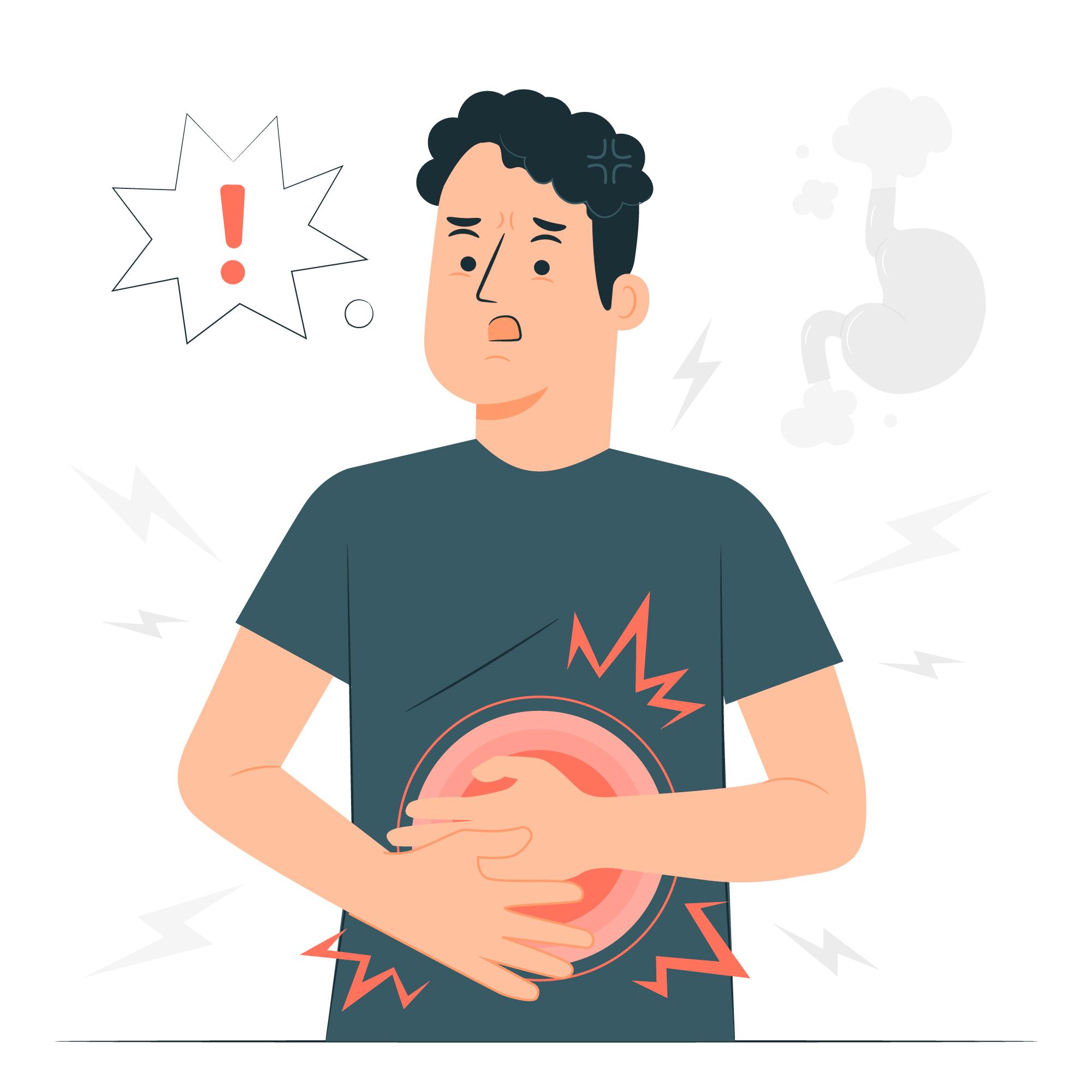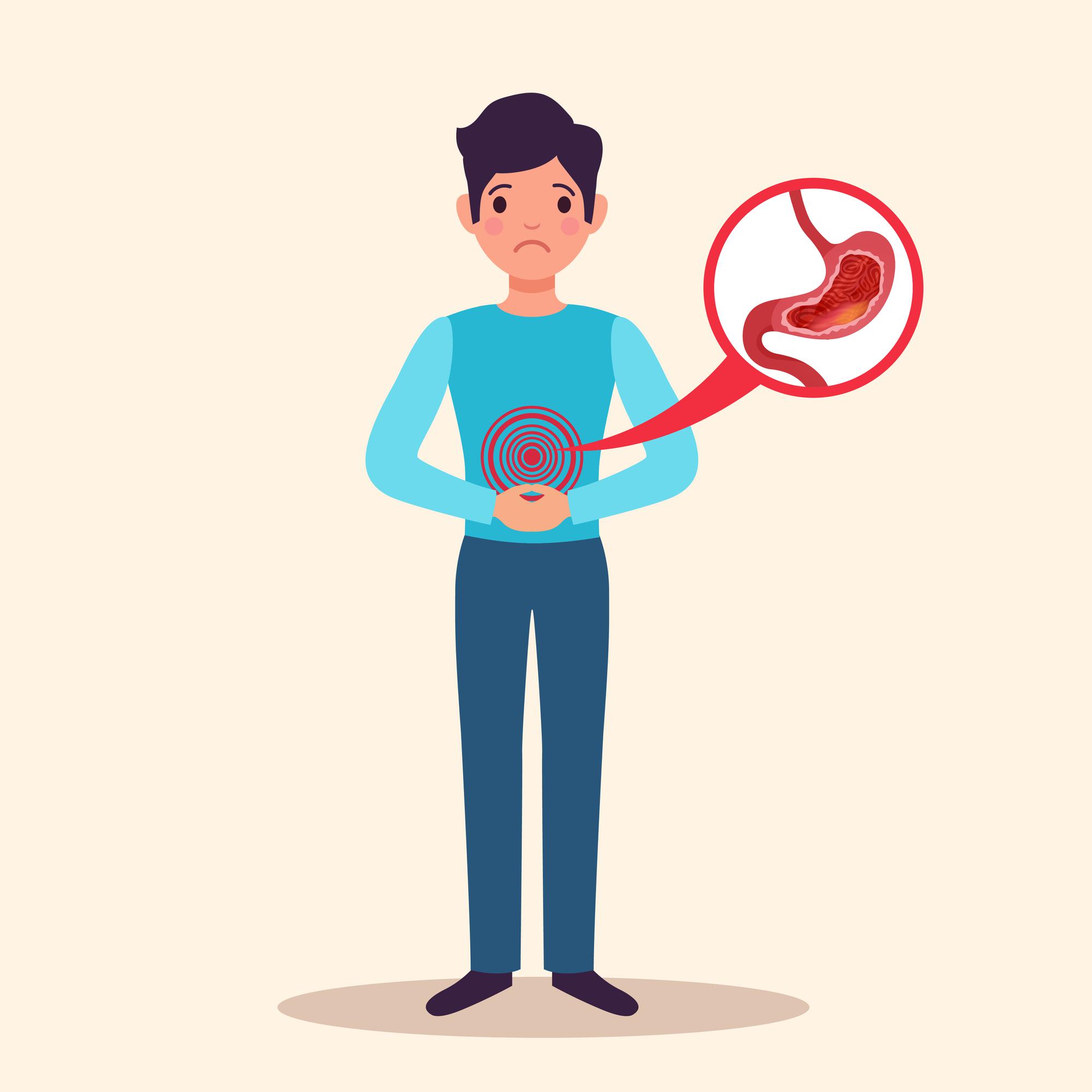

Welcome to our blog about, "Understanding GERD"! Join us on this journey of exploring and demystifying the world of Gastroesophageal Reflux Disease (GERD). Whether you're a curious reader, someone struggling with GERD symptoms, or a healthcare professional seeking comprehensive information, you've come to the right place.
In this blog, we aim to provide you with a wealth of knowledge about GERD, shedding light on its causes, symptoms, and effective management strategies. Our team of experts has poured their passion and expertise into crafting informative and easy-to-understand articles that will empower you to take control of your health and make informed decisions.
We understand that GERD can be a challenging condition to navigate, but rest assured, you're not alone. Read on to gain a deeper understanding of GERD, enabling you to lead a happier, healthier, and more fulfilling life.
Understanding GERD:
GERD occurs when the lower esophageal sphincter (LES), a muscular ring that acts as a gateway between the esophagus and stomach, doesn't function properly. When the LES weakens or relaxes inappropriately, stomach acid can flow back into the esophagus, resulting in a host of uncomfortable symptoms.
Common Symptoms:
Gastroesophageal Reflux Disease (GERD) can manifest in various ways, and recognizing its common symptoms is crucial for early detection and effective management. Here are some of the most prevalent symptoms associated with GERD:
1. Heartburn:
Perhaps the most well-known symptom of GERD, heartburn is a burning sensation or discomfort in the chest, often rising towards the throat. It may worsen after meals, when lying down, or during the night.
2. Regurgitation:
GERD can cause the backflow of stomach acid and partially digested food into the esophagus, leading to a sour or bitter taste in the mouth. Regurgitation is often accompanied by a sensation of liquid or food coming back up into the throat.
3. Chest Pain:
Some individuals with GERD experience chest pain that can mimic a heart attack. It's important to differentiate between GERD-related chest pain and cardiac-related chest pain, as the latter requires immediate medical attention.
4. Difficulty Swallowing (Dysphagia):
Chronic acid reflux can result in the narrowing of the esophagus or the formation of strictures, making it difficult or painful to swallow solids and even liquids. This symptom should be evaluated by a healthcare professional.
5. Chronic Cough:
GERD-induced irritation in the throat and airways can trigger a persistent cough that may worsen at night or after eating. This cough is often dry and non-productive.
6. Hoarseness or Voice Changes:
The recurrent exposure of the vocal cords to stomach acid can cause inflammation, leading to hoarseness, a raspy voice, or frequent voice loss.
7. Asthma or Asthma-like Symptoms:
For some individuals, GERD can exacerbate existing asthma symptoms or even trigger asthma-like symptoms such as wheezing, shortness of breath, or chronic bronchitis.
It's important to note that not everyone with GERD will experience all these symptoms, and individual experiences may vary. If you suspect you have GERD or are experiencing persistent or severe symptoms, it is recommended to consult with a healthcare professional for an accurate diagnosis and appropriate treatment options.

Triggers and Risk Factors:
Certain lifestyle and dietary factors can exacerbate GERD symptoms. Trigger foods and beverages, such as spicy foods, citrus fruits, caffeine, and alcohol, can increase the production of stomach acid and contribute to reflux episodes. Obesity, smoking, and certain medical conditions like hiatal hernia can also raise the risk of developing GERD.
Complications and Long-Term Effects:
Untreated or poorly managed GERD can lead to complications that go beyond uncomfortable symptoms. Chronic exposure to stomach acid can cause erosion of the esophagus, leading to the development of esophageal ulcers or strictures. In some cases, long-term acid reflux can even increase the risk of developing Barrett's esophagus, a precancerous condition.
Effective Management Strategies:
Managing Gastroesophageal Reflux Disease (GERD) involves a combination of lifestyle changes, self-care measures, and, in some cases, medical interventions. Here are some effective strategies for managing GERD:
1. Lifestyle Modifications:
- Maintain a healthy weight: Excess weight can increase pressure on the stomach, leading to acid reflux. Losing weight through a balanced diet and regular exercise can help alleviate symptoms.
- Adjust eating habits: Eat smaller, more frequent meals to prevent excessive stomach distension. Avoid lying down immediately after meals and try to have your last meal at least two to three hours before bedtime.
- Modify your diet: Identify and avoid trigger foods and beverages that worsen your symptoms. Common triggers include spicy foods, citrus fruits, tomatoes, chocolate, caffeine, alcohol, and fatty or fried foods. Consider keeping a food diary to track your symptoms in relation to your diet.
- Elevate the head of your bed: Raise the head of your bed by 4-6 inches by using bed risers or placing a wedge-shaped pillow under the mattress. This elevation helps prevent stomach acid from flowing back into the esophagus while sleeping.
- Quit smoking: Smoking weakens the lower esophageal sphincter (LES), allowing stomach acid to reflux more easily. Quitting smoking can significantly improve GERD symptoms.
2. Self-Care Measures:
- Practice mindful eating: Chew your food thoroughly and eat slowly to aid digestion and reduce the likelihood of overeating.
- Wear loose-fitting clothing: Tight clothes, especially around the waist and abdomen, can put pressure on the stomach and exacerbate GERD symptoms.
- Manage stress: Stress and anxiety can trigger or worsen GERD symptoms. Explore stress management techniques such as relaxation exercises, meditation, yoga, or engaging in activities you enjoy.
3. Medications:
- Antacids: Over-the-counter antacids can provide temporary relief by neutralizing stomach acid. They are best used for occasional or mild symptoms.
- H2 receptor blockers: These medications reduce the production of stomach acid and can provide longer-lasting relief than antacids. They are available over-the-counter or in stronger doses by prescription.
- Proton pump inhibitors (PPIs): PPIs reduce the production of stomach acid more effectively than H2 blockers. They are usually taken once a day and are available both over-the-counter and by prescription. Long-term use should be discussed with a healthcare professional.
4. Medical Interventions:
- Upper endoscopy. Your doctor inserts a thin, flexible tube equipped down your throat which helps your doctor see inside your esophagus and stomach. Test results may not show problems when reflux is present, but an endoscopy may detect inflammation of the esophagus (esophagitis) or other complications. An endoscopy can also be used to collect a biopsy to be tested for Barrett esophagus. In some instances, if a narrowing is seen in the esophagus, it can be stretched or dilated during this procedure. This is done to improve trouble swallowing.
- Ambulatory acid (pH) probe test. A pH probe is placed in your esophagus to identify when, and for how long, stomach acid regurgitates there.
- Barium test of the upper digestive system. X-rays are taken after you drink a chalky liquid that coats and fills the inside lining of your digestive tract. The coating allows your doctor to see a silhouette of your esophagus and stomach. This is particularly useful for people who are having trouble swallowing. You may also be asked to swallow a barium pill that can help diagnose a narrowing of the esophagus that may interfere with swallowing.
- Esophageal manometry. This test measures the rhythmic muscle contractions in your esophagus when you swallow. Esophageal manometry also measures the coordination and force exerted by the muscles of your esophagus. This is typically done in people who have trouble swallowing.
- Transnasal esophagoscopy. This test is done to look for any damage in your esophagus. A thin, flexible tube with a video camera is put through your nose and moved down your throat into the esophagus. The camera sends pictures to a video screen
Remember, it's essential to consult with a healthcare professional for an accurate diagnosis and personalized treatment plan tailored to your specific needs. They can provide guidance on the most suitable management strategies for your GERD symptoms.
Seeking Professional Help:
If you suspect you have GERD or experience persistent symptoms, it's essential to consult a healthcare professional for a proper diagnosis and personalized treatment plan. A healthcare provider can evaluate your symptoms, conduct tests if necessary, and guide you through the most effective management options based on your individual needs.
Treatments
- Antacids that neutralize stomach acid. Antacids containing calcium carbonate may provide quick relief. But antacids alone won't heal aninflamed esophagus damaged by stomach acid. Overuse of some antacids can cause side effects, such as diarrhea or sometimes kidney problems.
- Histamine (H-2) blockers — include cimetidine, famotidine and nizatidine. However they don't act as quickly as antacids, but they provide longer relief and may decrease acid production from the stomach for up to 12 hours. Stronger versions are available by prescriptions
- Proton pump inhibitors-These include esomeprazole, lansoprazole, omeprazole, pantoprazole, rabeprazole and dexlansoprazole. Although generally well tolerated, these medications might cause diarrhea, headaches, nausea, or in rare instances, low vitamin B-12 or magnesium levels.
Surgery and other procedures
GERD can usually be controlled with medication. But if medications don't help or you wish to avoid long-term medication use, your doctor might recommend:

Fundoplication:
- The surgeon wraps the fundus of your stomach around the lower esophageal sphincter to tighten the muscle and prevent reflux. Fundoplication is usually done with a minimally invasive laparoscopy. This wrapping can be complete (Nissen fundoplication) or partial (Toupet fundoplication). Your surgeon will recommend the type that is best for you.
- LINX device. A ring of tiny magnetic beads is wrapped around the junction of the stomach and esophagus. The magnetic attraction between the beads is strong enough to keep the junction closed to refluxing acid, but weak enough to allow food to pass through. The LINX device can be implanted using minimally invasive surgery.
- Ransoral incisionless fundoplication (TIF). This novel technique involves tightening the lower esophageal sphincter by creating a partial wrap around the LES using polypropylene fasteners. TIF is performed through the mouth & requires no surgical incision. Its advantages include quick recovery time and high tolerance. If you have a large hiatal hernia, TIF alone is not an option. However, TIF may be performed in combination with laparoscopic hiatal hernia repair.
Conclusion:
Because obesity can be a risk factor for GERD, weight-loss surgery is an option for treatment.
Gastroesophageal reflux disease can significantly impact the quality of life for those affected by it. By understanding its causes, symptoms, and management strategies, individuals can take proactive steps to alleviate discomfort and reduce the risk of complications. Whether through lifestyle changes, medication, or surgical interventions, effective management of GERD is attainable, allowing individuals to reclaim control and enjoy life free from the disruptive effects of acid reflux.
Disclaimer:
The information provided on these websites is not intended as a substitute for professional medical advice or emergency treatment. You should not use any information on these websites to diagnose or develop a treatment plan for a health problem or disease without consulting a qualified healthcare provider.